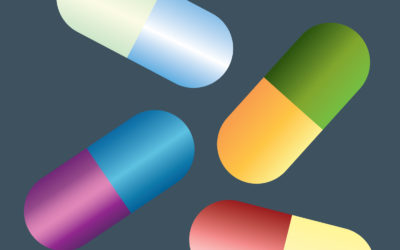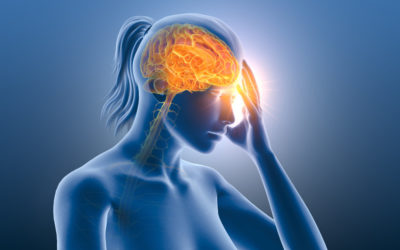People who suffer from migraines often hope for symptom control from proper diagnosis and treatment. However, even with the accurate diagnosis, treating migraines can be difficult. There are many drugs, technologies, and surgical therapies available to treat and prevent migraine episodes and symptoms.
What Is A Migraine?
A migraine is a reoccurring, disabling type of headache that is both common and unique. The classic migraine headache usually occurs on just one side of the head and causes a throbbing or pulsating pain. Migraine headaches are frequently accompanied by nausea and vision disturbances. Episodes might range from fairly minor to very severe. The majority of migraine sufferers have recurrent headache attacks that can occur for years.
Migraines affect 12-15% of the general population. Migraine headaches appear in roughly half of those people throughout childhood. Migraines are more common in women than men. Women account for two-thirds of migraine sufferers possibly due to the influence of hormones. Migraines tend to run in families as well.
Diagnosing Migraines
If you suffer from migraines, see your doctor. A doctor can diagnose you with migraines based on your medical history, symptoms, and a physical and neurological exam. A detailed medical history and physical examination can assist in confirming the diagnosis of migraine and rule out any potentially life-threatening illnesses. There are no specific diagnostic tests for migraines, but doctors will use a qualifying system to aid them in diagnosis. Doctors will look for:
- Nausea and/or vomiting during headaches
- Location of migraine
- Pulsating quality of the headache
- Duration
- Intensity or severity of the headache
- Migraines with or without auras
- Sensitivity to light
- Changes in vision, speech
Medications Used To Treat Migraines
A treatment strategy may consist of both acute and preventative drugs. Biofeedback and cognitive behavioral therapy are examples of non-medication preventive interventions.
To try to break a migraine attack, you can use acute medicines at the onset of the attack. The top migraine medications include both over-the-counter (OTC) and prescription migraine medication. However, it is generally recommended to use them in moderation to avoid drug misuse and the danger of a medication overuse headache.
Top Migraine Medications- OTC
Over-the-counter, medications are some of the top migraine medications due to their fast-acting ability to combat a migraine attack. If you are someone that experiences migraines frequently, speak to your doctor about preventive measures and the top migraine medications for your type of migraine that you will need a prescription for use.
- Aspirin
- Ibuprofen (Advil, Advil Migraine, or Motrin)
- Caffeine
- Naproxen (Aleve)
- Acetaminophen (Tylenol)
- Excedrin (Contains Aspirin, Caffeine, and Acetaminophen)
Top Migraine Medications- Prescription
Prescription migraine medications are used in the treatment and prevention of people who experience consistent migraines. When over-the-counter medications fail to alleviate migraines or when OTC use exceeds two days per week, prescription migraine medications are preferable. The following lists are not all-inclusive and there may be additional options out there.
Medications you can take at the onset of migraines:
- Triptans like sumatriptan (Imitrex), rizatriptan (Maxalt)
- Non-steroidal anti-inflammatory drugs (NSAIDs) like naproxen, celecoxib, or meloxicam
- Ergot alkaloids – ergotamine tartrate
- Serotonin 1F receptor agonists – Reyvow
- CGRP antagonists – Ubrelvy or Nurtec
- Opiates (tramadol, hydrocodone, oxycodone)
Medications you can take daily to prevent migraines:
- Topiramate (Topamax)
- Amitriptyline (Elavil)
- Divalproex (Depakote)
- Fluoxetine (Prozac)
- Gabapentin (Neurontin)
- NSAIDs, like naproxen
- Beta blockers – such as metoprolol or propranolol
- Blood pressure medications – such as lisinopril, losartan
Injectable medications used to prevent migraines:
- CGRP antagonists – Emaglity, Aimovig
- Botox
To find out the best treatment option for you and your type of migraine and if symptoms occur frequently or increase in intensity, speak with your doctor.
Get Discounts On The Top Migraine Medications!
If you suffer from migraines and are taking prescription medications for treatment, you don’t have to pay full price at the pharmacy! With Easy Drug Card, you can receive up to an 80% discount at your local pharmacy. Get your Easy Drug Card today by simply visiting our website and instantly downloading your free discount drug card!
Resources:
“Migraine” Mayo Clinic, 7 July 2021, https://www.mayoclinic.org/diseases-conditions/migraine-headache/diagnosis-treatment/drc-20360207
“Migraine” Harvard Health Publishing, 7 July 2021, https://www.health.harvard.edu/a_to_z/migraine-a-to-z
“Treatment of Acute Migraine Headache” American Family Physician, 7 July 2021, https://www.aafp.org/afp/2011/0201/p271.html
“Compound Medications for Acute Migraine Treatment” 7 July 2021, https://americanmigrainefoundation.org/resource-library/compound-medications-acute-migraine-treatment/
Am Fam Physician. 2006 Jan 1;73(1):72-78.












